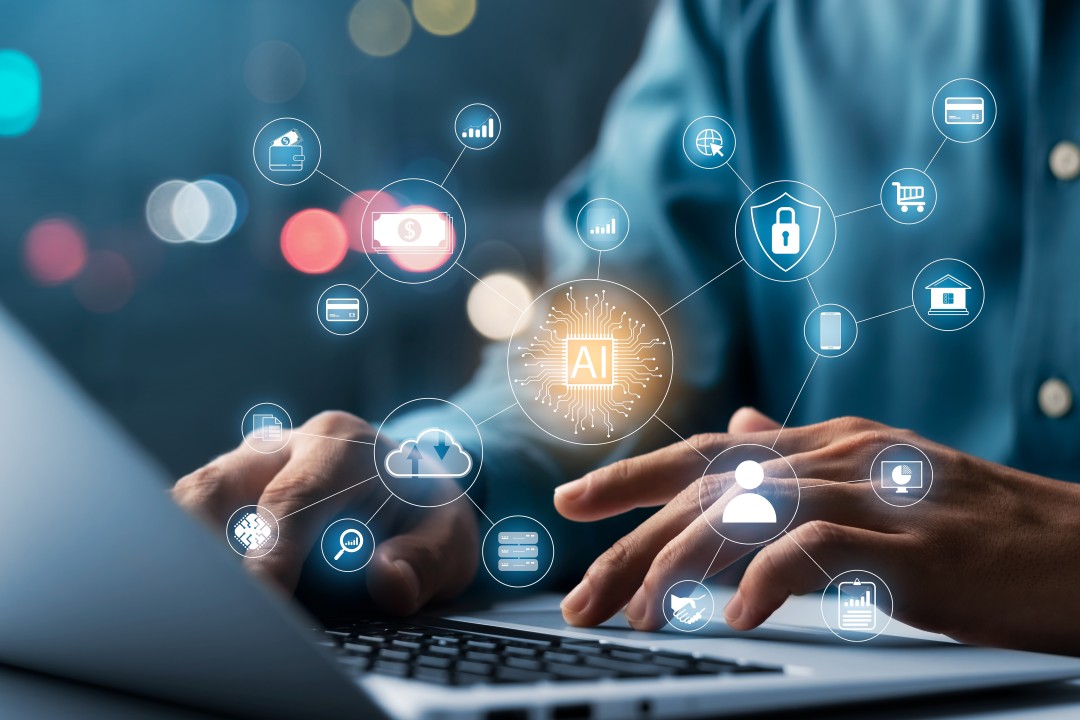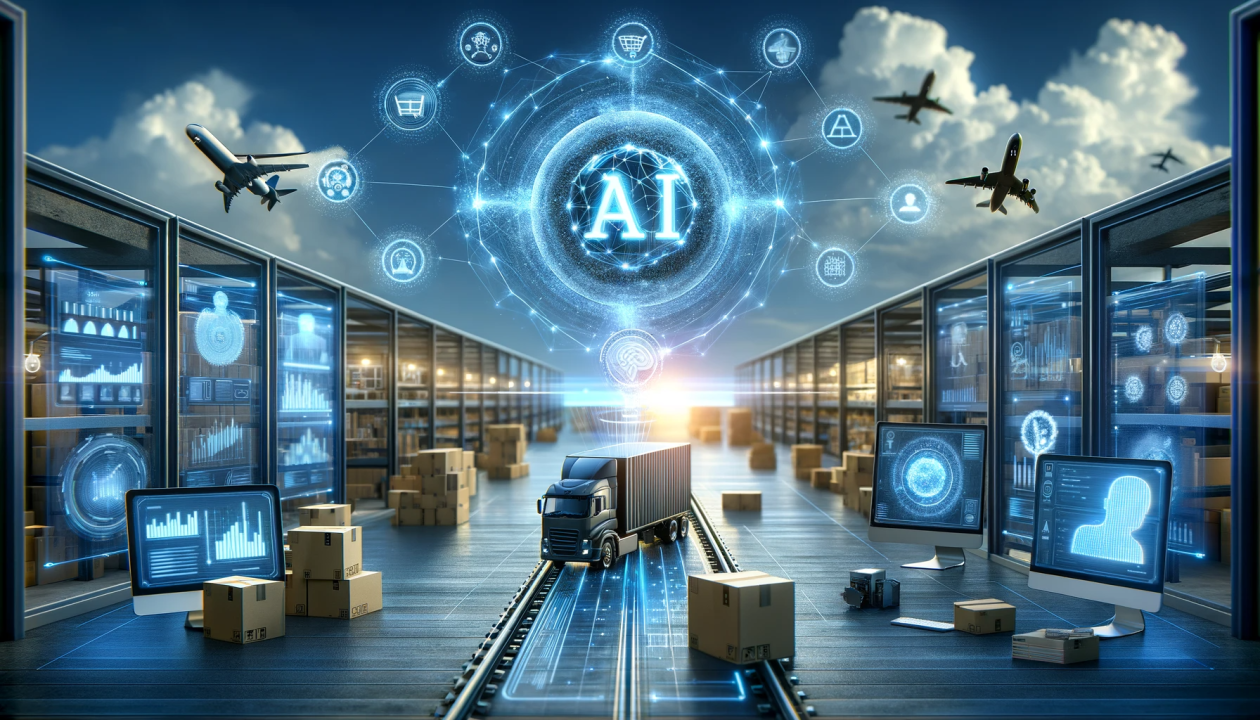I. Introduction
Artificial Intelligence (AI) has come a long way since its inception. Initially, AI was a concept confined to science fiction, but today, it is a reality that is transforming industries worldwide. AI refers to the simulation of human intelligence in machines that are programmed to think and learn like humans. AI has evolved significantly over the decades from simple rule-based systems to advanced machine learning algorithms.
In modern industries, AI is not just a buzzword; it is a crucial component that drives efficiency, innovation, and competitiveness. Businesses are leveraging AI to automate processes, gain insights from data, and enhance customer experiences. The impact of AI is profound, and its applications are diverse, spanning across healthcare, finance, manufacturing, retail, and transportation.
In this article, we will explore how the latest AI technologies are revolutionizing various industries. We will delve into specific applications and discuss the benefits and challenges associated with AI adoption. Buckle up, because the AI revolution is here, and it’s transforming the way we live and work!

II. AI in Healthcare
AI is making waves in the healthcare industry, bringing about significant improvements in diagnostics, treatment, and patient care. One of the most exciting applications of AI in healthcare is in diagnostics. AI algorithms can analyze medical images and data with remarkable accuracy and speed, helping doctors diagnose conditions like cancer, heart disease, and neurological disorders more effectively.
- AI-Powered Diagnostics: AI algorithms are improving diagnostic accuracy and speed, enabling early detection of diseases.
- Personalized Medicine: AI is enabling personalized treatment plans based on individual patient data, leading to better outcomes.
- Robotic Surgery: AI-assisted robotic surgery offers precision and reduces recovery times for patients.
- Predictive Analytics in Healthcare: AI is used to predict disease outbreaks and patient outcomes, aiding in proactive healthcare management.
- Administrative Automation: AI streamlines administrative tasks, allowing healthcare professionals to focus on patient care.
For more on how AI is transforming healthcare, check out our article on essential tax strategies for retirees.
III. AI in Finance
The finance industry is another sector where AI is making a significant impact. One of the most notable applications of AI in finance is algorithmic trading. AI algorithms can analyze vast amounts of market data in real-time, making high-frequency trading decisions that maximize profits.
- Algorithmic Trading: AI algorithms are used for high-frequency trading and market analysis, optimizing investment strategies.
- Fraud Detection: AI systems detect and prevent fraudulent activities, enhancing security in financial transactions.
- Customer Service Automation: AI chatbots and virtual assistants provide efficient customer service, improving user experiences.
- Risk Management: AI helps in assessing and managing financial risks, ensuring stability and compliance.
- Personal Finance Management: AI applications assist in personal budgeting and financial planning, helping individuals achieve financial freedom.
Curious about smart tax planning for high-income retirement? Check out our guide on secure your high-income retirement with smart tax planning.

IV. AI in Manufacturing
In the manufacturing sector, AI is driving efficiency and innovation. Predictive maintenance is one of the key applications of AI in manufacturing. By analyzing data from sensors and machines, AI can predict equipment failures and schedule maintenance, reducing downtime and costs.
- Predictive Maintenance: AI predicts equipment failures and schedules maintenance, ensuring smooth operations.
- Quality Control: AI performs real-time quality inspection and defect detection, maintaining high standards.
- Supply Chain Optimization: AI enhances supply chain efficiency, reducing costs and improving delivery times.
- Robotics and Automation: AI integrates with robotic systems to automate manufacturing processes, increasing productivity.
- Product Design and Development: AI aids in innovative product design and faster development cycles, bringing new products to market quickly.
For more insights on financial freedom, read our article on navigating your rich life: 10 money rules for financial freedom.
V. AI in Retail
The retail industry is leveraging AI to enhance customer experiences and streamline operations. Personalized shopping experiences are one of the most popular applications of AI in retail. AI-driven recommendation systems analyze customer data to provide personalized product recommendations, increasing sales and customer satisfaction.
- Personalized Shopping Experiences: AI-driven recommendation systems and personalized marketing enhance customer engagement.
- Inventory Management: AI efficiently tracks and manages inventory, reducing stockouts and overstock situations.
- Customer Insights and Analytics: AI analyzes customer data to provide actionable insights, helping retailers make informed decisions.
- Virtual Try-Ons and Augmented Reality: AI applications enhance the online shopping experience, allowing customers to virtually try on products.
- Fraud Prevention in E-commerce: AI systems detect and prevent fraudulent transactions, ensuring secure online shopping.
Want to know more about how AI is making waves in the digital nomad lifestyle? Check out our article on Xinjiang’s digital nomads: how happy are they really?.
VI. AI in Transportation and Logistics
AI is revolutionizing the transportation and logistics industry by improving efficiency and safety. Autonomous vehicles are one of the most groundbreaking applications of AI in this sector. Self-driving cars and trucks are being developed to reduce human error and enhance road safety.
- Autonomous Vehicles: Development and impact of self-driving cars and trucks, reducing human error and enhancing safety.
- Route Optimization: AI optimizes delivery routes, reducing transportation costs and improving efficiency.
- Fleet Management: AI enables efficient fleet management and maintenance, ensuring smooth operations.
- Predictive Analytics for Demand Forecasting: AI predicts transportation and logistics demand, aiding in resource planning.
- Safety and Compliance: AI applications ensure safety and regulatory compliance in transportation, reducing risks.
For a fun read on AI-generated content, check out our guide on 10 free AI prompts to generate cute cat pictures: a guide for cat lovers.
VII. Challenges and Ethical Considerations
While AI offers numerous benefits, it also presents several challenges and ethical considerations. Data privacy and security are major concerns, as AI systems often require large amounts of data to function effectively. Ensuring that this data is protected and used responsibly is crucial.
- Data Privacy and Security: Concerns about data privacy and the security of AI systems must be addressed.
- Bias and Fairness: AI systems must be designed to avoid bias and ensure fairness in their applications.
- Job Displacement: The impact of AI on employment and the future of work is a significant consideration.
- Regulatory and Legal Challenges: There is a need for regulations and legal frameworks to govern AI technologies.
- Ethical AI Development: Developing AI systems that adhere to ethical standards is essential for responsible AI deployment.
For more on the importance of retirement planning, read our article on is retirement planning really necessary for digital nomads?.
VIII. Conclusion
In summary, AI technologies are revolutionizing various industries, from healthcare and finance to manufacturing, retail, and transportation. The benefits of AI are immense, including improved efficiency, accuracy, and innovation. However, it is essential to address the challenges and ethical considerations associated with AI to ensure its responsible development and deployment.
Looking ahead, the future of AI is promising, with potential advancements that could further transform industries and improve our lives. As we continue to embrace AI, it is crucial to prioritize ethical standards and regulations to harness its full potential responsibly.
For more on passive income strategies, check out our article on passive income streams for the modern digital nomad.
FAQ
What is AI?
AI, or artificial intelligence, refers to the simulation of human intelligence in machines that are programmed to think and learn like humans.
How is AI used in healthcare?
AI is used in healthcare for diagnostics, personalized medicine, robotic surgery, predictive analytics, and administrative automation.
What are the benefits of AI in finance?
AI benefits finance through algorithmic trading, fraud detection, customer service automation, risk management, and personal finance management.
How does AI improve manufacturing processes?
AI improves manufacturing through predictive maintenance, quality control, supply chain optimization, robotics and automation, and product design and development.
What are the ethical considerations of AI?
Ethical considerations of AI include data privacy and security, bias and fairness, job displacement, regulatory and legal challenges, and ethical AI development.
